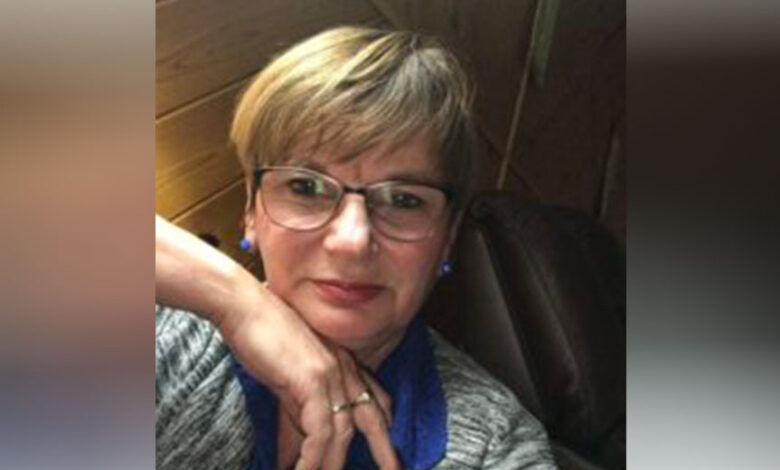
By Joan Janzen
Have you heard this comparison? Common sense is like deodorant; those who need it the most don’t have it. At this point in time, Canada needs to hear from people who possess common sense.
According to Bruce Pardy, “A lot of Canadians are having trouble recognizing their own country.” Bruce took a break from teaching at Queen’s University, to speak to the issue of civil liberties. He is Executive Director of Rights Probe.
In an interview with Faytene Grasseschi, he said, the bottom line is we’re in a situation where we’re governed by heavy handed government that has departments and agencies everywhere, and has its hand in everything. “Those Canadians who live with the idea that they are the primary people who have control over their lives, are finding that this idea is being challenged by the state,” he observed. On the other hand, he said there are people who believe it’s the job of government to tell us what to do.
Bruce suggests the alternative view of government is that it should be there to keep the peace, and be small and contained. Instead, Canadians are increasingly seeing everything in their lives is being regulated. Under this managerial state, over time, the individual is under the commanded system of the governing policies.
This law professor said, “It’s a design to encourage and forgive movements on the left, and crush movements on the right. Those Canadians who are assuming the law has an even hand, that everything is consistent and the law is supposed to be blind … those assumptions don’t necessarily apply now in our country. This is leading us to a kind of totalitarianism, and I don’t use the term lightly, where authorities tell you your worth based upon your skin colour, sex, gender and other characteristics that are supposed to have nothing to do with your legal rights. It’s a terrible, terrible place to be.”
When asked how this can change, he suggested, “What has to happen is a critical mass of Canadians has to just say no; we don’t approve of this. I’ve spoken to an awful lot of people who don’t agree with the prevailing narrative, and yet they feel they can’t say so because they’ll be accused of something awful. If everyone who thought that spoke up, and said no I don’t agree, suddenly the landscape would change.”
One of the issues people are speaking up about is the Liberal government’s demand that consumers accept electric cars by 2030. Naveen Day asked Michelle Stirling from Friends of Science, about her thoughts on this matter.
She pointed out the first problem: we don’t have enough power generation to support it. “We have to build 10,000 megawatts of more power just for the electric vehicle (EV) policy,” she said. She noted a report estimated it would cost $99 billion to do the full back up for the EV policy.
EVs also don’t operate well in extreme cold or extreme heat, and can’t be towed so have to be hauled on a flatbed. “You can’t bring a jerry can of electricity if you’re stuck on the road,” she said, “And if you’re off road or on a mountain highway that could be life threatening.”
They also use power to generate heat. Michelle recalled a story of a couple of people who drove across the US in an EV to prove it could be done. The trip took them about three days, but they completed it without any cabin heat, wearing three layers of clothing and blankets. “That’s not normally how people want to travel,” Michelle said.
As for the Just Transition bill, Michelle asked, “Just transition to what? Wind and solar barely even surface on the International Energy Agency (IVA) chart. Wind and solar have to be made with huge quantities of oil, gas and coal. If we phased out oil and gas in the west, where would we get the replacement income? Taxes paid by oil, gas and coal companies run our education and hospitals, pave our roads, and pay our government. Where will that money come from? We can’t export wind and solar.” Those are all valid questions.
She continued to reason that fertilizer is made from natural gas and all of modern medicine relies heavily on natural gas and oil. “We’re at a critical point in the world now. A lot of fertilizer factories in Europe have shut down because the price of natural gas has sky rocketed. The UN said there are 300 million people in the world facing starvation. We won’t have abundant crops and we will have many people facing famine. And if we shut down the oil and gas industry we’ll make that worse for everyone else in the world, and of course at home.”
That is just one example of the many, many issues in Canada that desperately need to have voices expressing common sense and reason as part of the conversation. You are one of those voices.
Bruce Pardy sums up the gravity of the situation, “The silver lining is hopefully they (government) have shown that they have reached too far and more Canadians are able to see what is going on. You have to have people who understand that there is a problem. That’s the kind of moment we’re in. We need people to be brave now because your country is at stake. Add your voice to the group that says the path we’re on is not a good one. We have to stop and think about this.”
At this point in time, Canada’s most valuable resource is common sense.








































